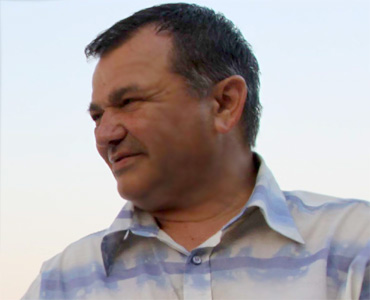Bulgarian pupils pass many exams at the end of each school year. Their knowledge is assessed by their school teachers, as well as by external inspectors. Pupils often have to learn a lot in a matter of few days of intensive studying which boosts tension at school and results in a series of conflicts. There are many examples of aggression among pupils. This is partly due to the role of their parents who do not have enough time to pay attention to what is happening in their kids’ school. The school pedagogues and teachers are the ones who suffer from those problems. The average age of the teaching staff in Bulgaria is fifty and many pensioners are still employed due to the lack of highly-qualified young teachers. So far teamwork between children and their mentors at schools seems impossible.
 “The teacher must be released from the unbearable engagement to assume responsibility for unlimited number of activities at school", school director and pedagogue Yuriy Andzhekarski told Radio Bulgaria. He remembers the changes he made to provide more space and opportunities to children to demonstrate their skills at his school. However, the school went through a series of hardships and lasted for only 15 years after the democratic changes in Bulgaria.
“The teacher must be released from the unbearable engagement to assume responsibility for unlimited number of activities at school", school director and pedagogue Yuriy Andzhekarski told Radio Bulgaria. He remembers the changes he made to provide more space and opportunities to children to demonstrate their skills at his school. However, the school went through a series of hardships and lasted for only 15 years after the democratic changes in Bulgaria.
“We can expect acts of aggression when twenty six pupils are stuffed in a very narrow classroom (around 30 square meters). According to the regulatory documents and the standards, each school must provide an area of at least 1.5 square meters per pupil. We are worried about the animals in our farms and try to provide them enough breeding space, but at the same time we do not think about the children at school and how to provide them the space they need. Aggression among pupils is provoked by the classroom architecture as well. This was proved by an experiment when rats were placed inside an aquarium and their showed aggression. We have to undertake some prompt measures, in order to make the Bulgarian schools attractive for pupils and reduce tension and aggression there. For instance, pupils must work more with private pedagogues. For example, if the majority of the pupils in a given class think that a given pupil must be moved to another class or school we only shift the problem somewhere else, but actually do not solve it completely. The private pedagogue can spend more time with pupils, in order to deal with tension successfully.”
 Recently, the fidget spinners gained huge popularity among children. However, some schools worldwide already banned them and some religious communities already described them as “the Devil’s favorite toys”. The Bulgarian teachers, however, are tolerant towards that fun widget, which is silent and does not disturb others. More from Mr. Andzhekarski:
Recently, the fidget spinners gained huge popularity among children. However, some schools worldwide already banned them and some religious communities already described them as “the Devil’s favorite toys”. The Bulgarian teachers, however, are tolerant towards that fun widget, which is silent and does not disturb others. More from Mr. Andzhekarski:
“Many children and adults love to play with fidget spinners. This is part of the human nature. People relax when they play with fun widgets. The good thing is that nobody can stop children play. In this sense, the game is a demonstration of our freedom. All restrictions at school are stressful. That is why pupils need to play at school, because they do that spontaneously. Moreover, we are not talking about virtual toys. They are quite real and help children develop their motor skills. I am not against such toys, because they make children feel better at school. In the past the Rubik’s Cube, Yo-Yo, Clackers, Tamagotchi and other toys were also very popular among pupils.”
English version: Kostadin Atanasov
The Bulgarian minority in Romania marked a significant event with the official opening of the Bulgarian Inn in the village of Izvoarele (Hanul Bilgarilor), Teleorman County (Southern Romania)- a locality with Bulgarian roots dating back over 200 years...
The 14th edition of DiVino.Taste, Bulgaria’s leading forum for wines and winemakers, will take place from 28 to 30 November at the Inter Expo Centre in Sofia. Over 80 producers from all wine regions will participate, offering tastings of around 600 of the..
Minutes before the second and final reading, at the parliamentary budget and finance committee, of the state budget for 2026, the leader of the biggest party represented in parliament GERB Boyko Borissov halted the procedure and sent the draft bill..

+359 2 9336 661
